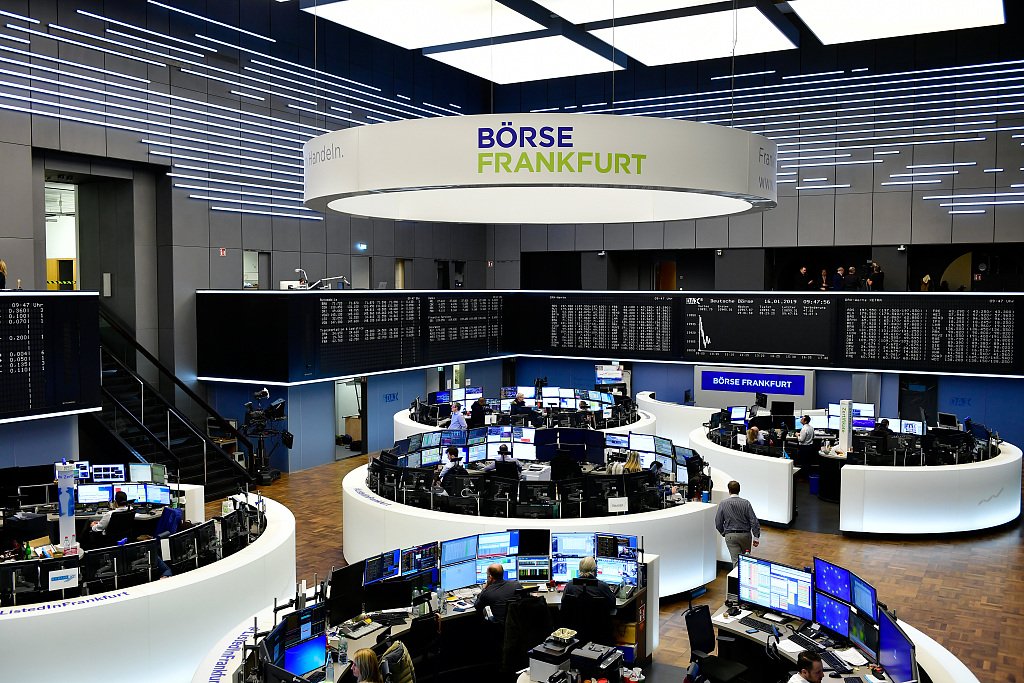European stock markets slumped Friday and the pound hit a fresh two-year low versus the euro as traders reacted to a fast-moving Italian political crisis and official data showing the UK's Brexit-facing economy is on the brink of recession.

Traders work at the Frankfurt Stock Exchange. (Photo: VCG)
"Markets tumbled on Italian political risk," said Craig Erlam, senior market analyst at Oanda trading group.
"US equity markets are poised to open a little lower on Friday, tracking losses across Europe," he added.
Milan's stock market dove more than two percent after Italy's far-right Deputy Prime Minister Matteo Salvini pulled support for the country's coalition government on Thursday and called for snap elections.
The heightened political tensions in the heavily-indebted country -- the eurozone's third largest economy -- also caused yields to rise on Italian government bonds.
"Naturally, Italian stocks -- and in particular, banks -- and bonds have been hardest hit but they are dragging everyone else down with them," Erlam added.
In currency trading, sterling's woes meant losses were limited for the European single currency, which managed a two-year high at 92.70 pence.
The weaker sterling capped losses on London's benchmark FTSE 100 index that features numerous multinationals earning in dollars.
Adding to Britain's economic troubles, official data released Friday showed that the country's economy unexpectedly shrank in the second quarter of the year.
Gross domestic product (GDP) fell 0.2 percent in the April-June period, the first time the economy has contracted in almost seven years.
Another contraction in the third quarter would put Britain in an official recession, ahead of the nation's expected withdrawal from the EU on October 31.
"All in all, today's disappointing GDP figure is set to raise alarm bells over Brexit dragging the UK economy deeper into the abyss," said Lukman Otunuga, senior research analyst at FXTM.
"This unfavourable scenario may prompt the Bank of England to cut interest rates sooner than anticipated, in an effort to revive the UK economy."


